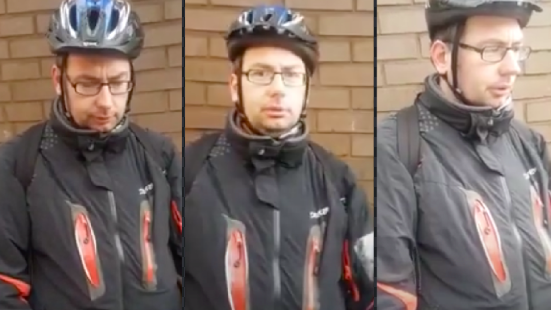Paedophile says Grindr vigilante group who exposed and ensnared him violated his right to privacy

Convicted paedophile Mark Sutherland was confronted by a Scottish vigilante group (YouTube/Groom Resisters Scotland)
A paedophile caught in a vigilante sting operation on Grindr is appealing his conviction in the UK Supreme Court, claiming it was a breach of his right to privacy.
Mark Sutherland, 37, believed he was communicating with a 13-year-old boy on the dating app Grindr, but he was actually speaking to a man named Paul Devine, a member of a “paedophile hunters” group called Groom Resisters Scotland.
When Sutherland arrived in Glasgow to meet the boy he was intercepted by the group, who streamed their encounter live online. They held him until the police arrived and arrested him.
Sutherland was found guilty of two charges of attempting to communicate indecently with an older child, and jailed for two years. He had previously been imprisoned for 21 months after sending explicit pictures and inappropriate messages to a 12-year-old boy two years earlier.
His case is now appearing before the UK’s highest court as Sutherland argues that the evidence against him was obtained unlawfully and breached his human rights.
His legal team say Devine was used as a “covert human intelligence source” by police without authorisation, and the evidence should therefore be ruled inadmissible.
The law surrounding this is currently unclear, but according to HM inspectorate of constabulary in Scotland, almost half of online grooming cases result from the activities of vigilante groups.
These groups are unregulated and untrained, and several senior police officers have expressed serious concerns about their activities. A report in February suggested that “a more robust proactive capability” on behalf of police was needed instead.
There is precedent for case based on vigilante evidence being overturned, as happened in Dundee when a court ruled that paedophile hunters’ messages amounted to “fraud” that were intended to induce the accused into committing a crime.
The Supreme Court ruling will be key as it will determine whether evidence gathered by the vigilante groups can be used in future court prosecutions, and whether this activity is compatible with human rights.

